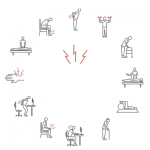(Reuters)—A panel convened by U.S. President Donald Trump to tackle the opioid crisis called on Wednesday for more treatment programs, tighter prescribing guidelines and additional drug courts to help reduce overdose deaths.
The commission, led by New Jersey Governor Chris Christie, said the recommendations would require funding by Congress but did not recommend an amount. Trump last week declared the opioid crisis a public health emergency.
Public health experts broadly welcomed the proposed measures.
“This sounds to me like a very progressive and very needed move,” said Professor Kosali Simon, a health economist at Indiana University, of the recommendations.
But Paul Hanly, a New York lawyer representing local governments in a legal battle against opioid makers, said recommendations, while laudable, would be “toothless” without substantial funding.
Opioids include prescription painkillers, heroin and fentanyl. More than 100 Americans die daily from overdoses, according to federal data.
The commission recommended a national media campaign to encourage opioid addicts to seek help. Only 10.6 percent of people who need treatment get it, the report noted.
The media campaign would encourage addicts to “stop being afraid or ashamed of seeking help when facing their addiction.”
It urged expansion of drug courts, in which addicts convicted of non-violent offenses are diverted into programs that combine treatment with mandatory drug testing and court appearances.
The commission said drug courts, which are currently offered in just 44 percent of U.S. counties, should embrace medication-assisted treatment to improve outcomes.
The U.S. Food and Drug Administration last week announced plans to encourage wider use of substitute opioids such as methadone and buprenorphine, which do not induce a high and are used to help people through drug addiction recovery.
Still, Dr. Stefan Kertesz of the University of Alabama at Birmingham said communities often lack treatment facilities where drug courts can send addicts. And many drug courts charge fees that make them unaffordable for many.
“Drug courts often function as pay to play,” Kertesz said. “Only people who can come up with money can escape a prison sentence.”
The report recommended expanding the ranks of emergency responders allowed to administer naloxone to treat overdoses. It also encouraged stricter prescribing guidelines for physicians.



